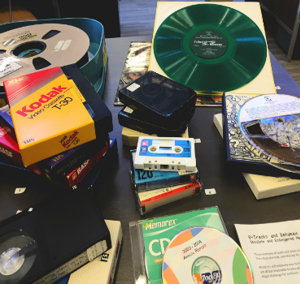- Art Home
- Exhibitions
-
Explore the Collection
- Explore the Collection Home
- African Art
- American Paintings, Sculpture and Drawings
- Contemporary
- Decorative Arts and Design
- East Asian Art
- European Paintings, Sculpture and Drawings
- Fashion Arts and Textiles
- Musical Instruments
- Indigenous American Art
- Photography
- Prints
- South Asian Art, Islamic Art and Antiquities
- Conservation
- Meet the Curators
- Digital Resources
- Events & Programs Home
- Calendar
- Accessibility
- Adults
-
Families & Teens
- Families & Teens Home
- 10x10 Teen Art Expo
- Art on the Rise
- Art Together: Art Making for Families with Children Ages 3–5
- Baby Tours
- Boy Scouts / Girl Scouts
- CAM Kids Day
- Choose Your Own Gallery Adventure
- Family Storytime and Gallery Walk
- Family Studio: Art Making for Families with Children Ages 6–12
- REC Reads
- Rosenthal Education Center (REC)
- See Play Learn Kits
- Summer Camp
- Teachers
- Community Outreach
- Fundraisers
- Plan Your Own Event

- Art Home
- Exhibitions
-
Explore the Collection
- Explore the Collection Home
- African Art
- American Paintings, Sculpture and Drawings
- Contemporary
- Decorative Arts and Design
- East Asian Art
- European Paintings, Sculpture and Drawings
- Fashion Arts and Textiles
- Musical Instruments
- Indigenous American Art
- Photography
- Prints
- South Asian Art, Islamic Art and Antiquities
- Conservation
- Meet the Curators
- Digital Resources
- Events & Programs Home
- Calendar
- Accessibility
- Adults
-
Families & Teens
- Families & Teens Home
- 10x10 Teen Art Expo
- Art on the Rise
- Art Together: Art Making for Families with Children Ages 3–5
- Baby Tours
- Boy Scouts / Girl Scouts
- CAM Kids Day
- Choose Your Own Gallery Adventure
- Family Storytime and Gallery Walk
- Family Studio: Art Making for Families with Children Ages 6–12
- REC Reads
- Rosenthal Education Center (REC)
- See Play Learn Kits
- Summer Camp
- Teachers
- Community Outreach
- Fundraisers
- Plan Your Own Event
Blog
Blog
- Home
- Plan Your Visit
-
Art
- Art Home
- Exhibitions
-
Explore the Collection
- Explore the Collection Home
- African Art
- American Paintings, Sculpture and Drawings
- Contemporary
- Decorative Arts and Design
- East Asian Art
- European Paintings, Sculpture and Drawings
- Fashion Arts and Textiles
- Musical Instruments
- Indigenous American Art
- Photography
- Prints
- South Asian Art, Islamic Art and Antiquities
- Conservation
- Meet the Curators
- Digital Resources
-
Events & Programs
- Events & Programs Home
- Calendar
- Accessibility
- Adults
-
Families & Teens
- Families & Teens Home
- 10x10 Teen Art Expo
- Art on the Rise
- Art Together: Art Making for Families with Children Ages 3–5
- Baby Tours
- Boy Scouts / Girl Scouts
- CAM Kids Day
- Choose Your Own Gallery Adventure
- Family Storytime and Gallery Walk
- Family Studio: Art Making for Families with Children Ages 6–12
- REC Reads
- Rosenthal Education Center (REC)
- See Play Learn Kits
- Summer Camp
- Teachers
- Community Outreach
- Fundraisers
- Plan Your Own Event
- Give & Join
- About
- Tickets
- Calendar
- Exhibitions
- Blog
- Shop
8-Tracks and Betamax: Obsolete and Endangered Media from the Museum Archives
by Geoff Edwards
3/4/2016
Mary R. Schiff Library and Archives , technology , digital preservation , archives , digital media

We’re all used to the inexorable march of technology – you can’t blink without your smart phone being superseded by a newer model. But, to be fair, this has been the case ever since some entrepreneurial caveman held a press launch for his swanky new range of bronze tools, leaving the traditionalists grumbling that they’d be sticking with stone.
Technological innovation has its upside, of course. Once upon a time computers were the size of houses and had the processing power of a Tickle Me Elmo; now we carry them in our pockets and have the ability to watch funny animal videos whenever and wherever we want. Progress is a wonderful thing.
But what about those obsolete and abandoned technologies, like the VHS video tape, for instance? If you decide it’s time to upgrade your video version of – oh, let’s say “Bad Boys 2” – from VHS to Blu-Ray, that’s pretty straightforward. But what happens when your VHS tape is a copy of the 1990 Art Academy of Cincinnati graduation ceremony. You won’t find that on Amazon.
Rescuing data from obsolete audio and video formats, not to mention computer media, is a problem that archivists are facing worldwide. And it’s not just that the fact that the hardware to play back these formats is increasingly hard to find; in many cases, the tapes and disks themselves have a limited lifespan. For example, recordable CDs and DVDs are particularly prone to failure within a matter of years, and can’t be relied on for the long-term storage of important data.
In the archives here at the Art Museum, we have a fairly representative collection of storage media that are either already obsolete, such as 8-track audio cartridges and Betamax video tapes, or on the critically endangered list, e.g. VHS tapes and audio cassettes. How are we going about making sure that these often unique records of Museum history remain accessible for future generations?
Making a copy is the most important first step, whether that’s digitizing analog media or copying files from aging CDs, DVDs, floppy disks, etc. Sounds simple, right? Well, whilst it’s fairly easy to get hold of equipment to play back, say, VHS tapes or audio cassettes, or to read 3.25 inch floppy disks, it’s far harder to find players for Betamax video tapes, or to find a computer that can read 5 inch floppy disks. Even assuming you do find some way of reading those antiquated floppy disks, do you actually have software that will open the files you discover? And, of course, once you’ve successfully backed-up every last bit of data and digitized every video tape, where do you store all those gigabytes – or more likely terabytes – of data? Digital storage is getting cheaper, but it’s not that cheap.
Thankfully, most of us don’t have a media collection of such variety or extent to tackle, but if you do have video tapes of your child’s first steps or audio tapes of your ‘80s garage band you want to preserve, do it soon – these tapes won’t last forever. It’s relatively easy to do it yourself with a little technical know-how, but there are also many companies that will do it for you.
Finally, one additional piece of advice for anyone concerned about protecting their digital files, whether photos, videos, or the draft of your Pulitzer-winning novel – backup, backup, backup. Whether it’s to the cloud, to external hard-drives, or you even printing it all out, you can never have too many copies…just in case. You never know when a sippy cup of juice is going to be poured into your laptop by an over-excited toddler, or when you’ll inexplicably click Yes in response to the question “Are you sure you want to permanently delete these files?” when you clearly meant No – these are just examples, by the way, not actual things that have happened to me…honestly.
Cincinnati, OH 45202
Toll Free: 1 (877) 472-4226
Museum Hours
Museum Shop
Terrace Café
Library
The Cincinnati Art Museum is supported by the generosity of tens of thousands of contributors to the ArtsWave Community Campaign, the region's primary source for arts funding.

Free general admission to the Cincinnati Art Museum is made possible by a gift from the Rosenthal Family Foundation. Exhibition pricing may vary. Parking at the Cincinnati Art Museum is free.
Generous support for our extended Thursday hours is provided by Art Bridges Foundation’s Access for All program.

General operating support provided by:



